Wyrmwood: Apocalypse (2021) is an Australian post-apocalyptic horror film directed by Kiah Roache-Turner.
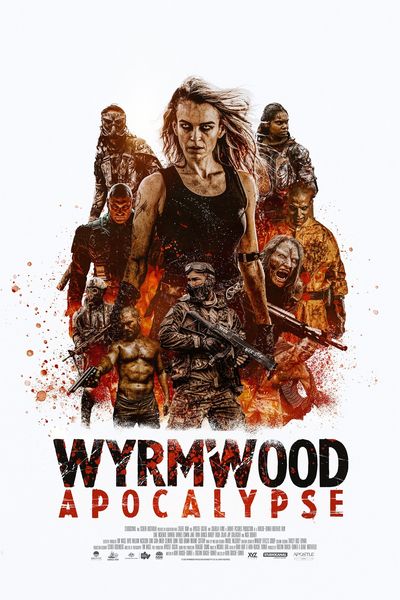
“Wyrmwood: Apocalypse” (2021) is an Australian post-apocalyptic horror film directed by Kiah Roache-Turner. This sequel to the cult hit “Wyrmwood: Road of the Dead” (2014) continues to explore a world overrun by zombies, blending horror, action, and dark humor in a uniquely Australian style.
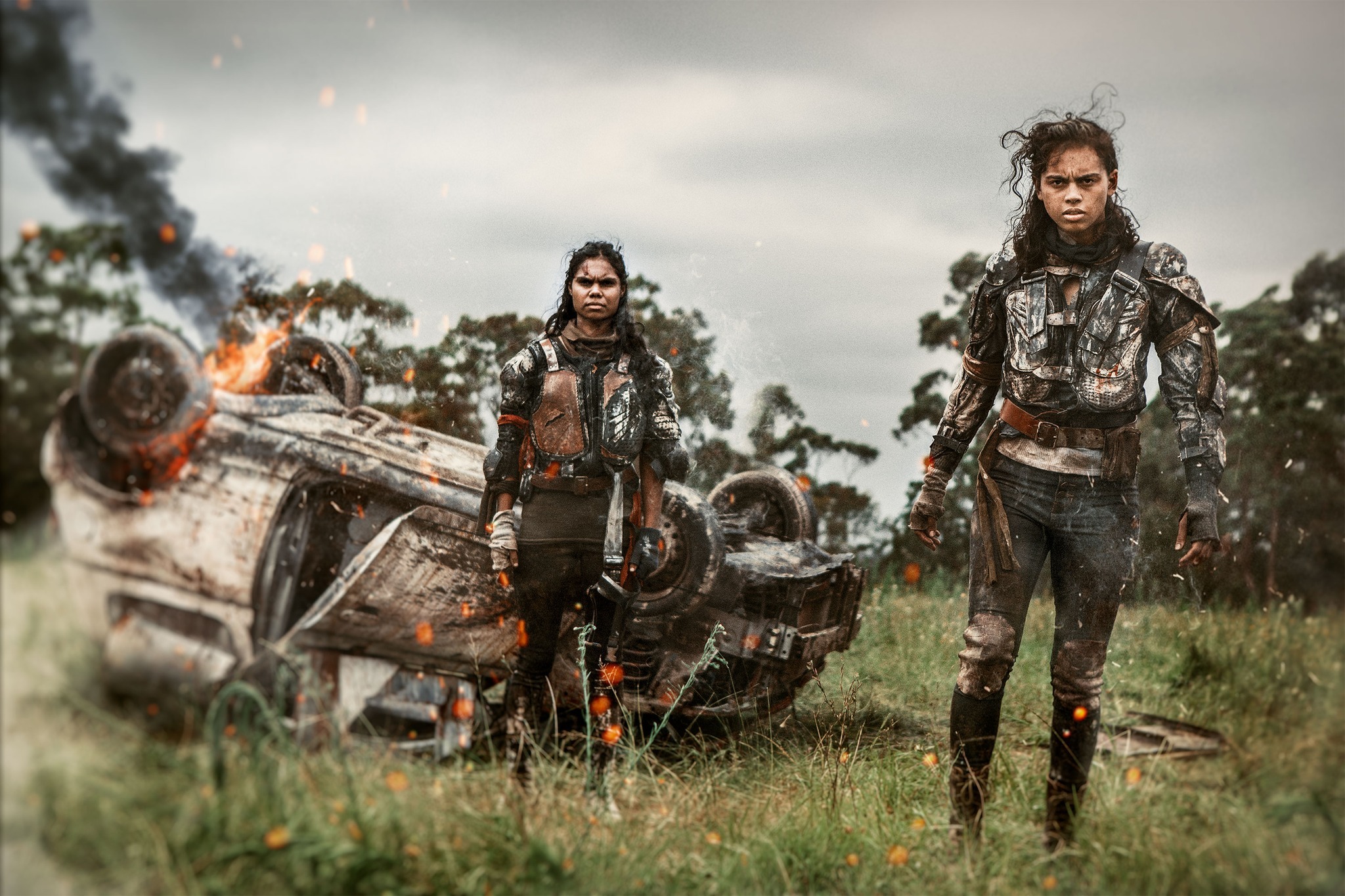
The story is set in a dystopian future where the world has been ravaged by a zombie apocalypse. The protagonist, Rhys, played by Luke McKenzie, is a soldier dedicated to capturing survivors and delivering them to a government base. However, Rhys discovers the horrifying truth that the government is conducting gruesome experiments on the captives to find a cure for the zombie virus.
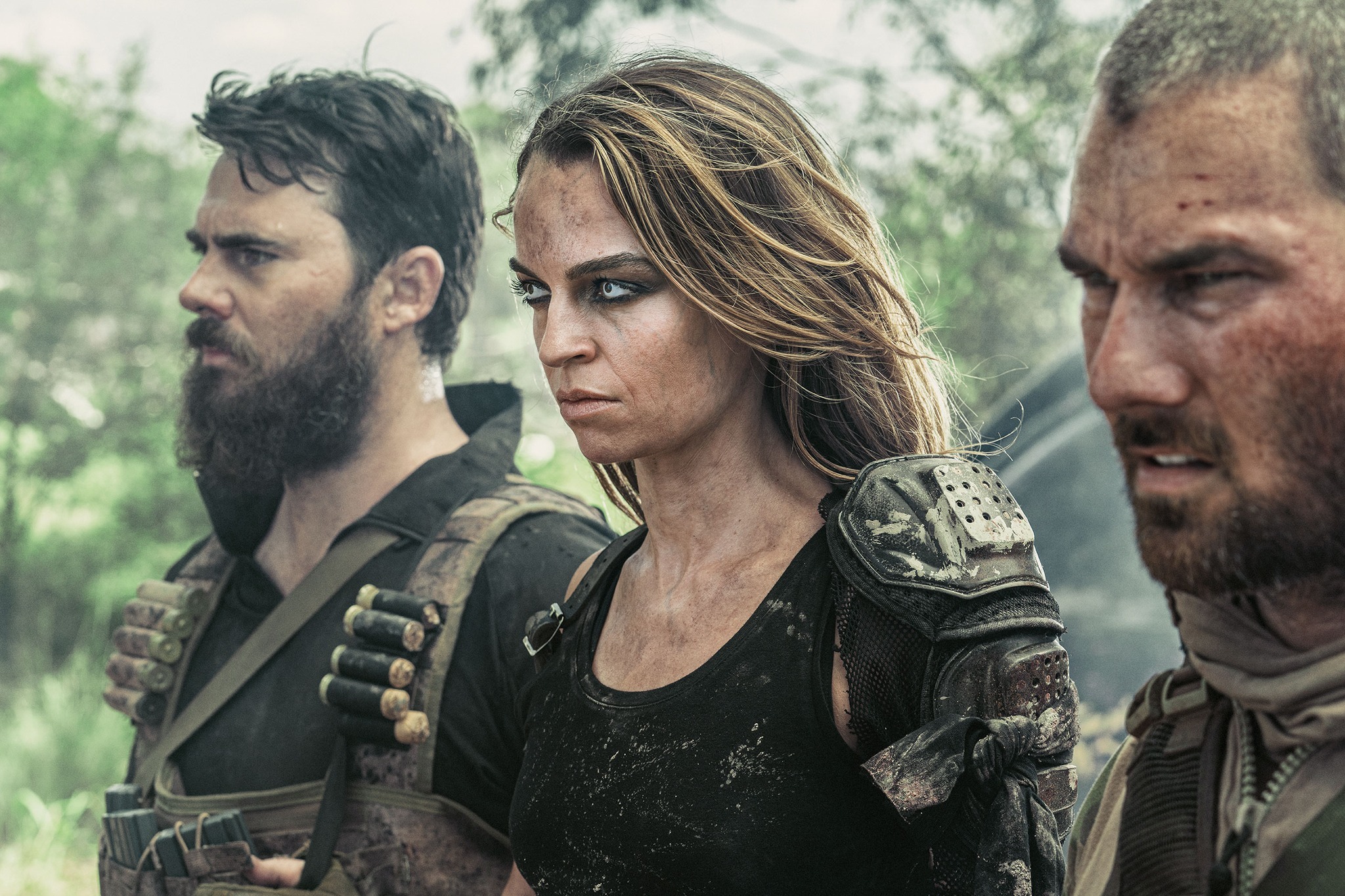
Rhys’s life takes a turn when he encounters a new group of survivors, including a fierce and resourceful woman named Grace, portrayed by Goran D. Kleut. Grace is on a mission to rescue her sister, Maxi, from the government’s clutches. Rhys, grappling with his conscience and the realization of the government’s atrocities, decides to join forces with Grace and her group.

The film is noted for its fast-paced action sequences, creative practical effects, and distinctive aesthetic, which combines gritty realism with a stylized, almost comic-book-like visual flair. The use of practical effects for the zombies and gore adds to the film’s visceral impact, making the horror elements more tangible and intense.
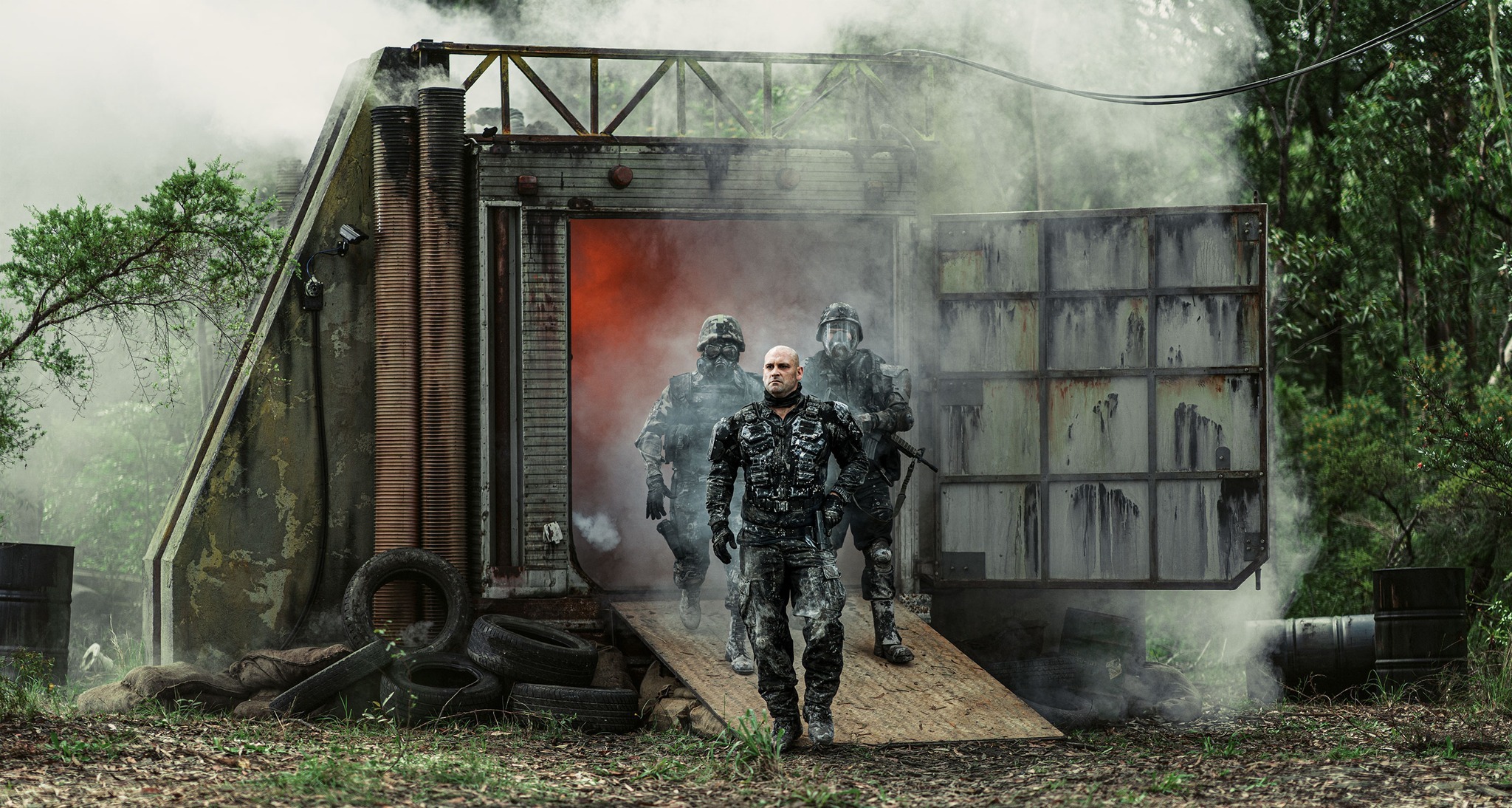
Kiah Roache-Turner’s direction infuses the film with a frenetic energy, balancing horror and action with moments of dark humor. The film also delves into themes of survival, loyalty, and redemption, as the characters navigate a brutal and unforgiving world.
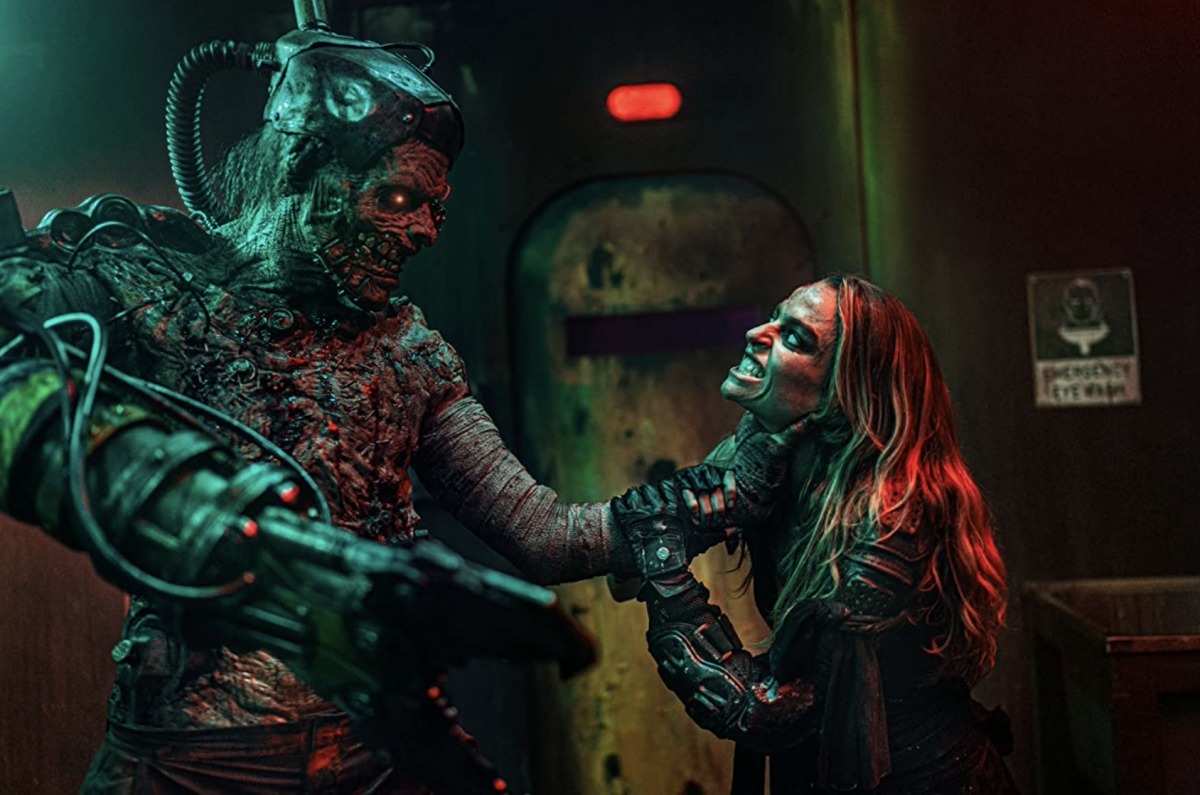
“Wyrmwood: Apocalypse” stands out in the zombie genre for its inventive approach, strong performances, and its ability to blend horror with an offbeat sense of humor. It continues the legacy of its predecessor by delivering a thrilling and visually striking post-apocalyptic adventure, cementing Kiah Roache-Turner’s place as a notable director in the genre.











